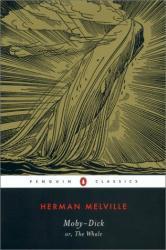
Mobs-Dick, or The Whale by Herman Melville is a novel, in which the narrator, Ishmael, befriends Queequeg, a South Seas harpooner, and together they look for a whaling crew. Eventually, they join Captain Ahab aboard the Pequot.
Ishmael soon finds that Ahab had lost his leg and vessel to a powerful whale, who is called Moby-Dick. The captain and his crew sail around the world to hunt down the whale for revenge. The book does have a very deep and ambitious theme, as Herman Melville addresses many controversies throughout his writing, with subtle remarks. The characters and plot fit perfect together and everything is well developed with some sort of backstory. My only problem with this book is that it includes many useless and boring chapters. They don't add anything to the story, and while they attempt to bring up a deep topic, they completely and utterly fail to. Overall this book is decent and definitely aspires to be the "mighty book" that it's meant to be. I would recommend it to people who like high seas adventure novels.
Grade: 8
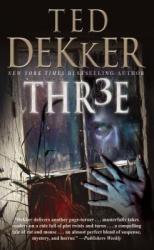
Thr3e by Ted Dekker (great title after reading the book) is one of the greatest murder mystery novels out there. The book begins with the main protagonist, or so it seems, Kevin Parson. He receives a phone call from a psychopath in Killer named Slater saying that he has three minutes to confess his sin to the world or else his car will blow up. This is just one of the many events that take Kevin, Samantha, his greatest friend, and Jennifer, an FBI agent, through a world of mystery and motives. The twists and turns are the main attraction of this novel, as the reader won't expect what comes next. Character backstories also play a gigantic role in this novel, and all of them are well crafted to fit the plot. Anyways, I would recommend it to anyone willing to take the time to read a book.
Grade: 8
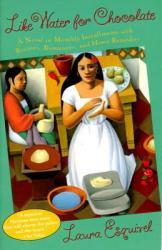
I love this book. The magic surrounding Tita and her cooking is at times beautiful, funny, and heartbreaking. This book is told by Tita's great-niece and one can imagine the magic as real or as a result of storytelling. Your choice. Either way, this captivating quick read is a must.
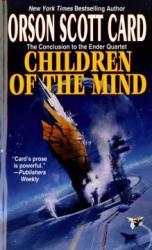
Just like Xenocide before it, Children of the Mind is difficult to separate from the previous books in the Ender’s Game series. In fact, Xenocide and Children of the Mind are considered by Orson Scott Card to merely be two parts of the same book, separated at a point in the plot that makes sense.
Even further to the point, I would consider Children of the Mind the last “part” of a story that stretches across four books. While it was easy to take Ender’s Game by itself, every additional piece of the story needs the previous parts for it to have the full impact of what Card was trying to accomplish.
What’s most interesting about this series is how each book has a different focus, almost putting them in distinct genres. Ender’s Game was militaristic sci-fi, while Speaker of the Dead was more along the lines of a mystery. And while Xenocide was the philosophical heart of the series, Children of the Mind was almost a romance in comparison. I appreciated the loose strings and sub-plots being tied up by the end of Children of the Mind, especially when it came to defining the relationships between the characters I had come to know over the last few books.
Even though the basic plot of these last three books was a simple “avoid destruction” motif, the complexity of the whole scenario did require the amount of text dedicated to it. Each element of these stories came into play in some fashion to create a satisfying ending. I’m still in awe of the technological foresight and brilliant solutions to fundamental physics limitations that Card was able to develop in these four books. I rarely have found a series that has been so consistently good across all parts of its story, and I believe the saga of Ender Wiggin is now my new favorite.
A satisfying ending to an incredible series of books, I give Children of the Mind 5.0 stars out of 5.
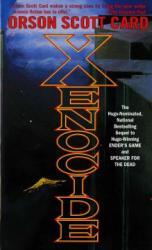
Much like authors Jules Verne and H.G. Wells were well ahead of their time in their science fiction writing, Orson Scott Card once again shows that he understood some of the key concepts of our universe. Written in 1991, Card’s Xenocide deepens and furthers the continuing adventure of Ender Wiggin that he began back in Ender’s Game . Picking up where Speaker for the Dead left off, Xenocide adds a powerful adversary while also tying plot points back to the first book in the series. In this sense, the tight intertwining of Xenocide with its predecessors makes it difficult to separate and review by itself.
I appreciate what Card has done by creating a multi-book narrative that requires the reader to have started from the very beginning of the story.
While Xenocide is not nearly the end of the series, as made clear by the astounding twist near the end, it does pull enough unresolved threads from Ender’s Game and Speaker for the Dead to create the next segment of the story. In this sense, the whole story is a multi-book epic so well-written that no detail or specific piece of continuity is overlooked. Plus, with so much history behind it, Xenocide reads at a frenetic pace, just trying to “beat the clock” of an almost assured planetary destruction.
Surprisingly, if you told me that there was a sci-fi book comprised almost entirely of dialogue and profound, philosophical arguments, I would probably assume it was boring (or at least written by Robert Heinlein). And yet, Card has brought the reasoning proposed in the previous books of this series and pulled them through to their logical conclusions, creating an engaging discussion of artificial intelligence and sentience, while wrapping the whole thing in the context of moral arguments for and against exterminating an entire species. There are no easy answers in this book, but Card has masterfully included concepts like cloud computing, interdimensional travel, and genetic engineering to get his point across.
A fantastic continuation of Ender Wiggin’s story that leaves the reader begging for more, I give Xenocide 5.0 stars out of 5.
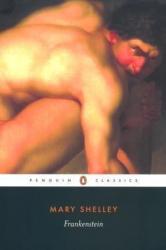
Mary Shelley's Frankenstein is a book about the horrors of creating life. The book succeeds in developing most of the sidecharacters. You learn in depth about all of their pasts, and the story fits together well. The tragic plot line of the book shows how the decisions made by Frankenstein, the creator of the monster, comes back to haunt him. It almost becomes a game of cat and mouse when Frankenstein chases around his creation for revenge when really, the monster is haunting Frankenstein for his own revenge. Most of the book's themes include loneliness and rejection, and are explained well throughout the back stories of the characters. I feel that the book's only weak point is how the characters face their end. While the characters do indeed learn many life lessons, they never really accomplish anything. None of the characters have sentimental deaths, other than Frankenstein; the book just tells the reader that the character you have just grown attached to...well, dies. The book moves on from their deaths, and then the cycle repeats for the rest of the book. Overall, Frankenstein is a really good book, and I'd recommend it to people that like horror or mystery fiction.
Grade: 8
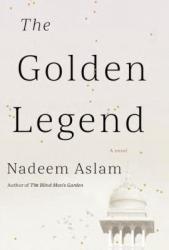
Peer into the lives of a Pakistani couple whose Christianity is at odds with the more widespread Islamic beliefs of the locals. This is a story of intrigue and excitement as the plot slowly moves towards a head on religious collision when a local rickshaw driver falls in love with the widowed daughter of an Imam. A beautiful look at Pakistani cultural and religious differences. Wonderful, intense characters.
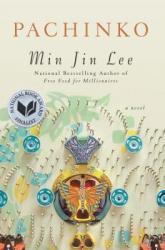
Read a story of family, loyalty, racial prejudice and the meaning of difference. Enjoy the individual triumphs and failures of several generations of one family and changes they experience as they live and learn. Find out about the old time gambling sport, pachinko and its effects on an extraordinary family. This is the kind of book that makes you miss your "friends" when you finish it.
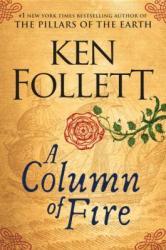
Travel back in time and walk the lanes and byways, sail the seas, or straddle a horse and visit with a gamut of folks from queens and kings of European powers to courtiers, to merchants and villagers, to pirates and tradesmen. Get to know the characters in the fight for religious tolerance and witness the blood that was shed for this privilege. The struggle between Catholic and Protestant worshippers becomes real with the unspeakable cruelty among humans who believe their beliefs trump the beliefs of others. Call it the devil. An arduous but enjoyable read.
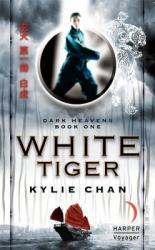
Kylie Chan mixes modern life with traditional Chinese mythology in her enthralling tale. The story follows Emma, a nanny for a young girl of a wealthy business man living in Hong Kong. As Emma becomes more and more connected with her charge, she become more entangled with a mystery that surrounds the household. She soon discovers that her employer is an ancient Chinese God, and is pursued by demonic forces. Kylie Chan writes with a faced-pace adventurous quality that keeps readers on their feet.
(Reviewer Grade: 12)
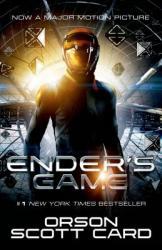
Ender's Game is an enthralling and thrilling sci-fi following a young boy as he is prepped to save the world. Ender departs for battle school at the ripe age of 6, where he is thrust into a world were children go head to head in a competition to be the best, fight in an all out war, and earn all the glory.
Although young and inexperienced, Ender is the best. But things seem to be stacked against him....
Orson Scott Card writes with incredible dexterity and Ender's Game pulls you into a new world.
(Reviewer Grade: 12)
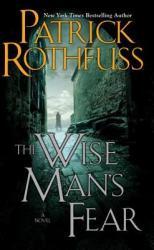
A Wise Man's Fear is the second installment of the KingKiller Chronicles following The Name of the Wind. Rothfuss continues Kvothe's tale as he learns to navigate new worlds and new relationships. Unlike many sequels, A Wise Man's Fear is not lacking in adventure or astute characters. Having left the university, Kvothe faces assassination plots, powerful fey, and a trial by powerful mercenaries. In this book, we really see Kvothe become a hero and stretch his legend across the four corners of civilization. Rothfuss writes with the same dexterity as seen previously, and he always leaves you wanting more.
(Reviewer Grade: 12)
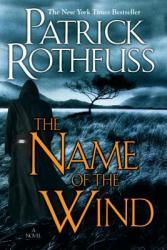
The Name of the Wind follows the story of Kvothe, a highly clever, not so childish kid who faces perils uncommon in this world and the next. Name of the Wind is not just another coming-of-age story. Rothfuss weaves an incredible story of intrigue. This book, while a little daunting at first, is worth every page. The use of language is masterful and Rothfuss manages to keep readers engaged every step of the way.
(Reviewer Grade: 12)
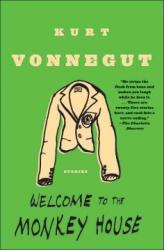
Much like short story anthologies by a single author (see Neil Gaiman’s Smoke and Mirrors and Ray Bradbury’s The Golden Apples of the Sun ), Welcome to the Monkey House is both quintessentially a collection of Kurt Vonnegut’s biting wit and satire as well as an exploration of other genres not often associated with Vonnegut’s style. Fans of Vonnegut will likely have already read some of these short stories (like “EPICAC” and “Tomorrow and Tomorrow and Tomorrow”), but some of the other stories might have been missed and for a good reason.
Overall, Welcome to the Monkey House is a fantastic set of stories, but a few of them fail to have the impact to make them memorable. Granted, these stories are few and far between, and help to break up the well-written social commentaries presented in “Harrison Bergeron” and the titular “Welcome to the Monkey House.” Vonnegut’s ability to show the slippery slope of such ideas as “everyone is equal” and “sex is bad,” respectively, is just as poignant in short form as it is in his novels. The fusion of technology in these stories might seem dated by today’s standards, but they do reveal that Vonnegut was, inherently, a science-fiction writer.
What this collection does well is show that Vonnegut understood the importance of the characters in a story. One of the most entertaining in this collection was “Who Am I This Time?” which contained characters at such extremes of human expression as to be completely unrealistic but somehow relatable and entertaining. Stories like this, which don’t necessarily follow the political or societal commentary that the other stories provide, are nice breathers that give the reader a smile instead of drilling thought-provoking ideas into their skulls. It’s this balance that truly makes Welcome to the Monkey House a must-read.
Vonnegut, true to form as well as outside his element, I give Welcome to the Monkey House 4.0 stars out of 5.
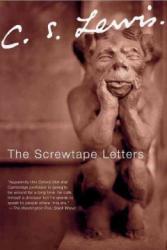
Perhaps the first documented fictional exploration of spiritual warfare, The Screwtape Letters is an expertly crafted examination of what the enemy of our souls is plotting. The reader is given insight into one side of a correspondence between two demons of differing influence and rank, thus providing a “behind the scenes” look at what the enemy is plotting and what they consider to be a victory for them. At moments, it can be difficult to follow along since the context of Screwtape’s “enemy” is really the “good” side of the spiritual battle. Either way, C.S. Lewis has crafted a brilliant satire about how little humans understand of their spiritual lives.
While I wouldn’t necessarily ascribe The Screwtape Letters to pure theology, there are plenty of eye-opening and thought-provoking statements in Screwtape’s letters to his nephew. From the demons’ acknowledgment that pleasure is of God’s design but overindulgence in pleasure is in their realm to the ever-constant battle to bring humanity’s spiritual fervor into the “lukewarm” category, many of the topics covered in this book are still applicable today. In fact, an astute reader can pick up exactly where the demons have gained victories in today’s society filled with apathy and spiritual malaise.
My biggest qualm with this book is that it wasn’t longer. Lewis unquestionably had the creative spark to package theology in an entertaining context via books like this, so I would have liked if there were more letters included in the set to stir up more conversation and induce more moments of reflection in our own lives. If someone were to write the unauthorized sequel to this book that could do so, I would certainly read it in a heartbeat.
The greatest example of writing from an antagonist’s perspective, I give The Screwtape Letters 4.5 stars out of 5.
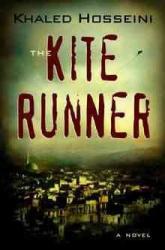
In an odd twist, I haven’t actually seen the movie this book was based on before I started reading it. Sure, I was aware The Kite Runner was a notable book, but I knew little about it other than the peripheral knowledge that comes from seeing an occasional movie trailer. About five years ago, I found this book for cheap at a bookstore and decided to pick it up on a whim. Now that I’ve finally read it, I’m glad I bought it those many years ago.
Unquestionably, it deserved the notoriety it received, as it is a well-written and engaging story.
I’ll admit that there is much I don’t know about the specifics of Afghanistan and Islam. This book certainly opened my eyes to a lot of things I had suspected, but could never confirm. First of all: men are awful. I’m a man myself, but I’m ashamed that so much of human misery is linked to the pride that distorts any of us into racists, sexists, and/or terrorists. While it was likely just a result of correctly depicting a patriarchal culture, The Kite Runner shines a harsh light on the hypocrisy of a fair number of men, most of whom only ascribe to these long-held “ideals” because it helps them maintain power and cover their insecurities.
The emotional heart of the story lies with the relationship between Amir and Hassan. By the end of the book, while I found the “twists” to be logical and almost predictable, they still elicited an emotional response from me. In fact, I almost would have thought this book to be a true story, were it not for the plot being just slightly too convenient at times. Sure, The Kite Runner made me mad that such thinking existed/still exists, but the fact that it caused me feel so strongly about it proves how effective its storytelling is.
A modern classic filled with timeless lessons, I give The Kite Runner 4.5 stars out of 5.
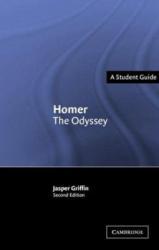
The Odyssey is a very famous book by the ancient author Homer. It is about Telemachus, son of the famous king Odysseus, and his journeys. The literary techniques in this epic, including rhyme scheme, reveal a deeper meaning. I was intrigued by Homer's diction and his use of Greek gods to convey important points. Additionally, the abundance of vivid imagery, intricate metaphors, and extended similes give this epic some zest. The Odyssey is both a fun yet complex read, and I recommend it for everyone.
Reviewer Grade: 11

Safe Haven is one of Nicholas Sparks's many romance novels. Main character Katie's status quo is quite somber and desperate, with an abusive husband and no independent life of her own. Safe Haven shows Katie's journey as she struggles to get away from her old life. Although I normally do not enjoy romances, this one was different. The storyline was gripping and thrilling. The writing was perfectly suited for the plot. I recommend this book to anyone, whether you like romances or not.
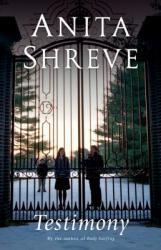
Testimony by Anita Shreve is about a scandal at a local college-prep called Avery. It takes us through the events that led up to the scandal in an intriguing and intense way. The characters are beautifully written, which makes this book all the more tragic. Shreve takes an inhuman event an connects us to it through lovable characters, many different perspectives, and tough ethical dilemmas. Though this book is heart-wrenching, I strongly recommend it for Shreve's lucid writing.
Reviewer Grade: 11
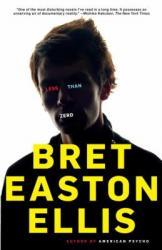
Less than Zero is a 1985 book that reveals the reality and hardships of being a teenager in Los Angeles. Though the majority of the kids in this book are filthy rich and spoiled, their lives are quite depressing.
This book is not for the faint of heart. However, it is extremely well-written and very evocative. Ellis does not hold anything back in writing this, which is part of my appreciation for it. The characters are hauntingly complex yet dry, which serves this book perfectly. I recommend Less than Zero because it feels real, and the bleak tone is very thought-provoking.


